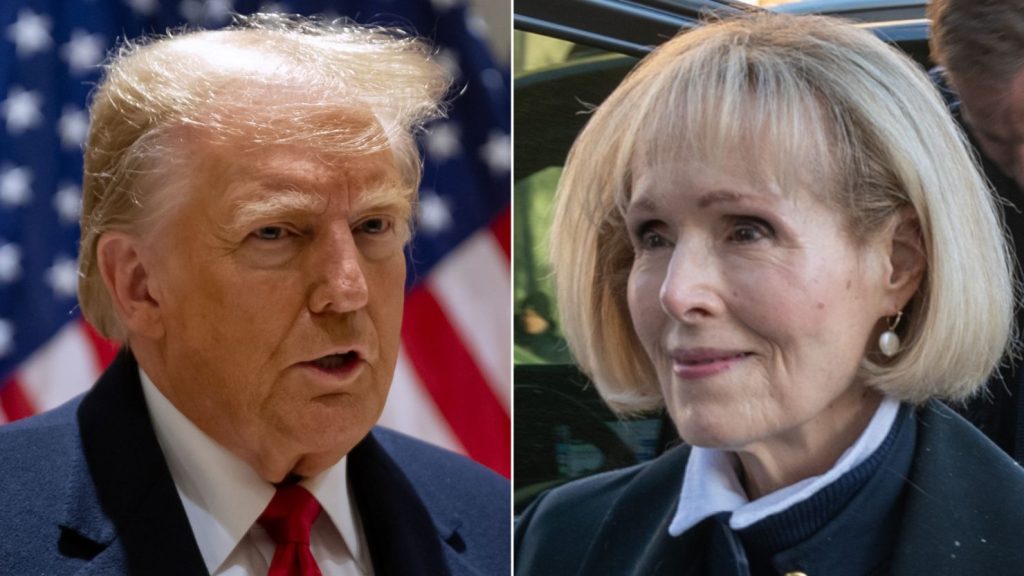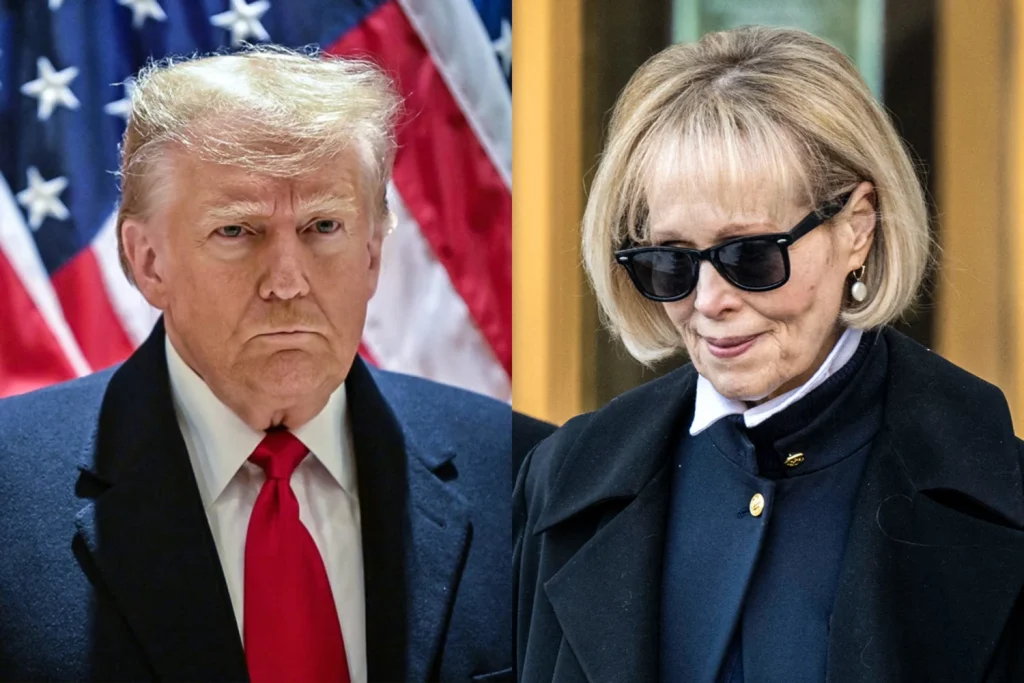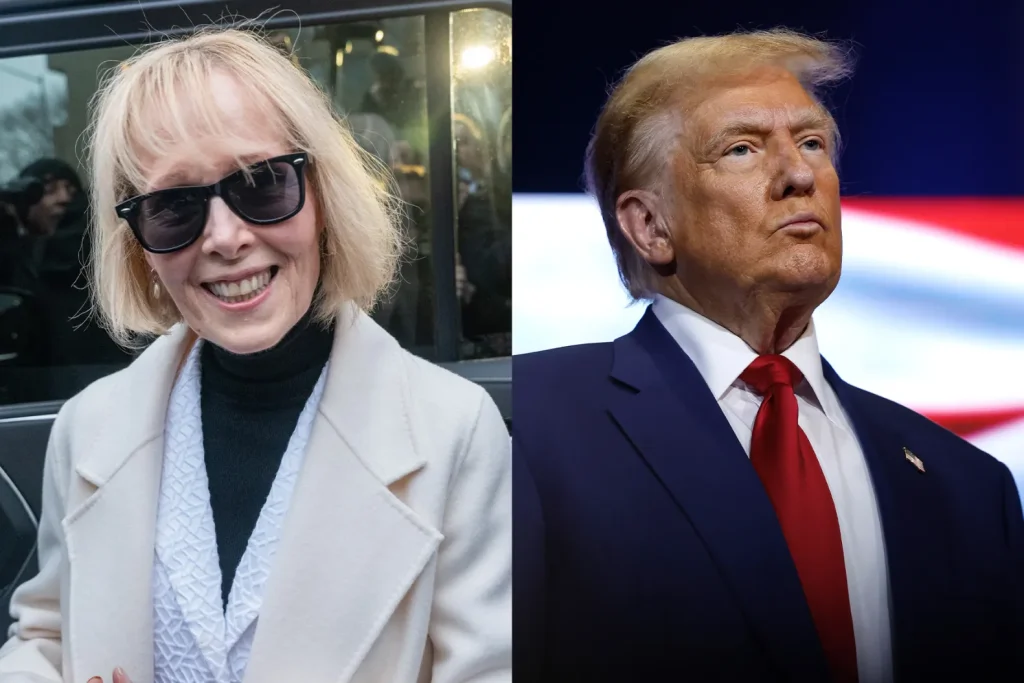Federal Appeals Court Upholds E. Jean Carroll’s $83 Million Judgment Against Trump in Stunning 3-0 Ruling
There are days in politics and law when the headlines feel like they were written for history books. Today was one of those days. The Second U.S. Circuit Court of Appeals handed down a unanimous 3-0 ruling that upheld the $83.3 million defamation verdict against former President Donald Trump in favor of writer E. Jean Carroll. It was the kind of legal blow that Trump and his legal team had fought tooth and nail to prevent, yet it arrived with a clarity that leaves little room for interpretation.
The story between Trump and Carroll has been unfolding for years, and in many ways it reflects something larger about accountability, power, and truth. Carroll, a longtime journalist and advice columnist, accused Trump of sexually abusing her in a Manhattan department store in the 1990s. When she came forward publicly decades later, Trump denied the claims in harsh and personal terms, calling her accusations a lie and mocking her appearance. Carroll sued him for defamation, arguing that his attacks had damaged her reputation and subjected her to public ridicule.

What began as one lawsuit eventually multiplied into two major cases. In 2023, a New York jury found Trump liable for sexual abuse and defamation, awarding Carroll $5 million. Then, in a separate defamation trial in early 2024, another jury awarded her $83.3 million—an extraordinary sum that reflected not only the harm to Carroll but also the jury’s conclusion that Trump’s actions were malicious and deserved significant punitive damages to deter similar conduct.
Trump, as expected, appealed both cases. He framed them as politically motivated and insisted he was being unfairly targeted. His lawyers launched every argument available, from challenging the jury process to leaning on the U.S. Supreme Court’s recent ruling on presidential immunity. They argued that because the Supreme Court had expanded immunity protections for presidents, Trump’s comments about Carroll while in office should be shielded.
But today’s decision by the appeals court shut that argument down completely. In a unanimous ruling, the judges said Trump was not protected by immunity in this situation and that the damages awarded by the jury were “fair and reasonable.” They described Trump’s conduct as “extraordinary and unprecedented,” noting that his repeated public attacks on Carroll required a strong response from the courts. In other words, the judges made it clear: the jury got it right, and the punishment fits the behavior.

For Carroll, this is another vindication. Over the past few years, she has been through a grueling legal journey, often under the glare of national attention. She has faced skepticism, criticism, and a torrent of online abuse. Yet she persisted. Each courtroom win has reinforced the idea that her voice matters, and that even someone as powerful as a former president can be held accountable.
For Trump, the ruling is another in a long line of legal setbacks. It is no secret that he is facing an overwhelming list of lawsuits, criminal charges, and civil penalties. The Carroll cases stand out not just for their financial impact—nearly $90 million combined when including the earlier $5 million judgment—but also because they touch on his personal character in ways that are difficult to shake off. The rulings don’t just hit his wallet; they shape how history will remember him.
The appeals court’s decision also carries weight for the broader legal system. Presidential immunity has always been a complex issue. The Supreme Court’s recent expansion of immunity sparked heated debates about how much protection a president should have for actions taken in office. Trump’s lawyers tried to stretch that decision to cover his defamatory remarks about Carroll. The Second Circuit’s rejection of that argument sends a message: immunity does not mean impunity. Presidents are not above the law when it comes to private citizens and personal attacks.

What happens next is anyone’s guess. Trump still has the option of appealing to the Supreme Court, and given his history, it is almost certain that he will. His legal team has already signaled plans to do so in the earlier $5 million case, and it would be surprising if they didn’t attempt the same with the $83 million judgment. Whether the Supreme Court will even agree to hear the case is another matter entirely. If they refuse, the appeals court’s ruling stands as the final word.
Meanwhile, Carroll has expressed gratitude and a sense of relief at the outcomes so far. She has said repeatedly that her motivation is not just about money but about truth and accountability. For her, the verdicts are proof that speaking out was worth it. She once described the lawsuits as a way to reclaim her dignity after being mocked on the national stage by one of the most powerful men in the world. Today’s decision reinforces that reclaiming.
There’s also the political angle. Trump remains the dominant figure in the Republican Party and is once again at the center of American politics. His opponents will undoubtedly use these rulings to question his fitness for leadership. Supporters, meanwhile, may dismiss the verdicts as part of a broader campaign against him. But regardless of political leanings, the fact remains: multiple juries, and now a federal appeals court, have ruled against him in ways that cannot be spun away.

For the legal system, the Carroll cases will likely be studied in law schools for years to come. They are a reminder of how civil courts can serve as a powerful tool for accountability, especially in situations where criminal charges may not be pursued. They also highlight the importance of juries—the ordinary citizens who weigh evidence and deliver judgments in high-profile cases.
It is worth pausing here to reflect on what $83 million actually means. To the average person, it is an unimaginable sum, the kind of number you hear in corporate lawsuits or lottery jackpots. For Carroll, it represents both compensation and a public acknowledgment of the harm she endured. For Trump, it is another massive financial burden in a year already filled with mounting legal costs, fines, and penalties. For the courts, it is a statement that no one, regardless of status, is free to damage another person’s reputation without consequence.
As the news spreads, reactions are pouring in across media outlets and social platforms. Supporters of Carroll are celebrating the decision as a victory for truth and accountability. Trump’s allies are decrying it as unfair and politically driven. And yet, beneath all the noise, the fact remains: the law has spoken, not once, but multiple times.
This chapter may not be the end. Trump could still take his fight to the Supreme Court, and if he does, the case will once again capture national attention. But for now, E. Jean Carroll has won another round. Her persistence, her willingness to endure years of public scrutiny, has been rewarded with another decisive legal victory.
When the history of this era is written, there will be many chapters about Donald Trump—the businessman, the president, the political force. But there will also be a chapter about E. Jean Carroll, the woman who stood up, told her story, and held him accountable in a court of law. Today’s ruling ensures that chapter will be remembered as more than a footnote. It will be remembered as a turning point.


